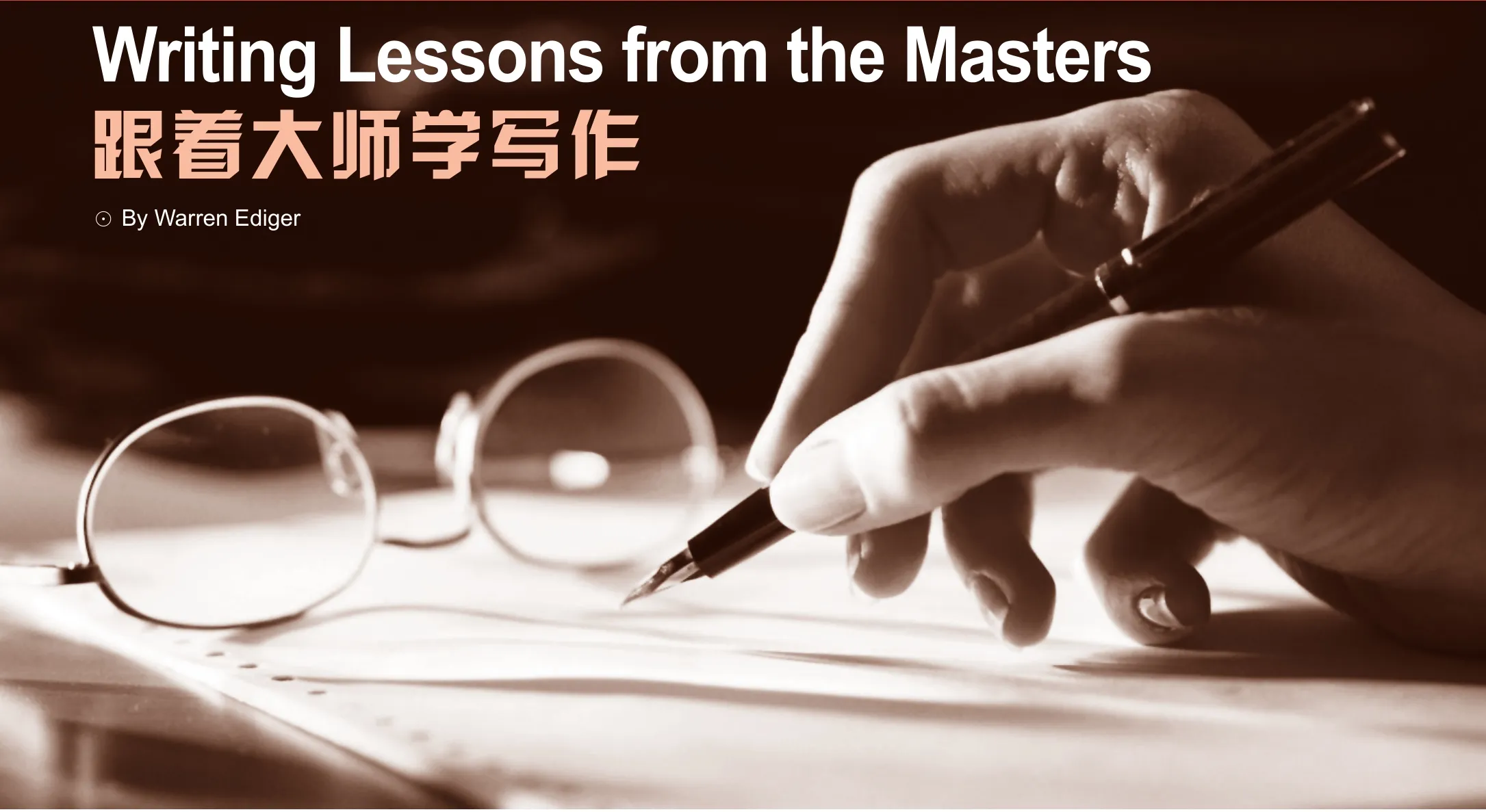跟著大師學寫作
⊙ By Warren Ediger
跟著大師學寫作
⊙ By Warren Ediger

The key to good writing—in short—is clear thinking followed by clear, concise writing. Here are some tips from a few of the world’s great writers about how to do that.
Tips from C.S. Lewis
“納尼亞之父”C.S.劉易斯如是說
√ Always try to use the language so as to make quite clear what you mean and make sure your sentence couldn’t mean anything else.
√ Always prefer the plain[平實的], direct word to the long, vague one. Don’t implement[履行]promises, but keep them.
√ Never use abstract nouns when concrete ones will do. If you mean “More people died,”don’t say “Mortality[死亡率]rose.”
√ Don’t use adjectives which merely tell us how you want us to feel about the thing you are describing. I mean, instead of telling us a thing was terrible, describe it so that we’ll be terrified. Don’t say it was delightful; make us say “delightful” when we’ve read the description. You see, all those words (horrifying[令人恐懼的], wonderful, hideous[可怕的], exquisite[精致的]) are only like saying to your readers, “Please, will you do my job for me?”
√ Don’t use words too big for the subject. Don’t say infinitely[極其]when you mean very—otherwise, you’ll have no word left when you want to talk about something really infinite.
Tips from David Ogilvy
“廣告教父”大衛(wèi)·奧格威如是說
√ Write the way you talk. Naturally.
√ Use short words, short sentences, and short paragraphs.
√ Never send a letter or anything else on the day you write it. Read it aloud the next morning—and then edit[修改]it.
Tips from John Steinbeck
《憤怒的葡萄》作者——約翰·斯坦貝克如是說
√ Write freely and as rapidly[迅速地]as possible and throw the whole thing on paper. Never correct or rewrite until the whole thing is down.
√ Forget your generalized[廣義的]audience. In the first place, the nameless, faceless audience will scare you to death and in the second place…it doesn’t exist. In writing, your audience is one single reader.
Tips from George Orwell
《1984》作者——喬治·奧威爾如是說
√ Never use a metaphor[暗喻], simile[明喻], or other figure of speech[修辭]which you are used to seeing in print—in other words, be yourself.
√ Never use a long word where a short one will do.
√ If it is possible to cut a word out, always cut it out.
√ Never use the passive where you can use the active.
√ Never use a foreign phrase, a scientific word, or a jargon[術語]word if you can think of an everyday English equivalent[對應詞].

——以《三體》明喻翻譯為例

